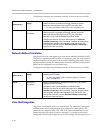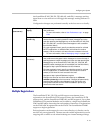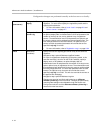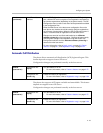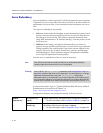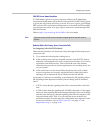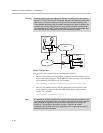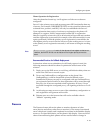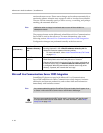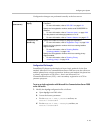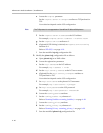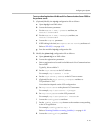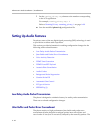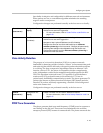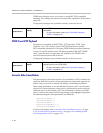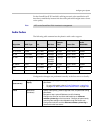
Administrator’s Guide SoundPoint IP / SoundStation IP
4 - 38
monitored status occurs. Phone status changes are broadcast automatically to
monitoring phones when the user engages in calls or invokes do-not-disturb.
The user can also manually specify a state to convey, overriding, and perhaps
masking, the automatic behavior.
The presence feature works differently when Microsoft Live Communications
Server 2005 is used as the call server. For more information, refer to the
following section, Microsoft Live Communications Server 2005 Integration.
Configuration changes can performed centrally at the boot server:
Microsoft Live Communications Server 2005 Integration
SoundPoint IP phones can used with Microsoft Live Communications
Server 2005 and Microsoft Office Communicator to help improve business
efficiencies and increase productivity and to share ideas and information
immediately with business contacts.
Note
Notification when a change in monitored status occurs will be available in a
subsequent release.
Central
(boot server)
XML file: <Ethernet
address>-directory.
xml
The <bw>0</bw> (buddy watching) and <bb>0</bb> (buddy
blocking) elements in the <Ethernet address>-directory.xml file
dictate the Presence aspects of directory entries.
• For more information, refer to Local Contact Directory File Format
on page 4-10.
Local Local Phone User
Interface
The user can edit the directory contents. The Watch Buddy and
Block Buddy fields control the buddy behavior of contacts.
Changes will be stored in the phone’s flash file system and backed up
to the boot server copy of <Ethernet address>-directory.xml if this
is configured. When the phone boots, the boot server copy of the
directory, if present, will overwrite the local copy.
Note
Any contacts added through the SoundPoint IP phone’s buddy list will appear in as
a contact in Microsoft Office Communicator and Windows Messenger.
Polycom recommends that the BLF not be used in conjunction with the Microsoft
Live Communications Server 2005 feature. For more information, refer to Busy
Lamp Field on page 4-25.



